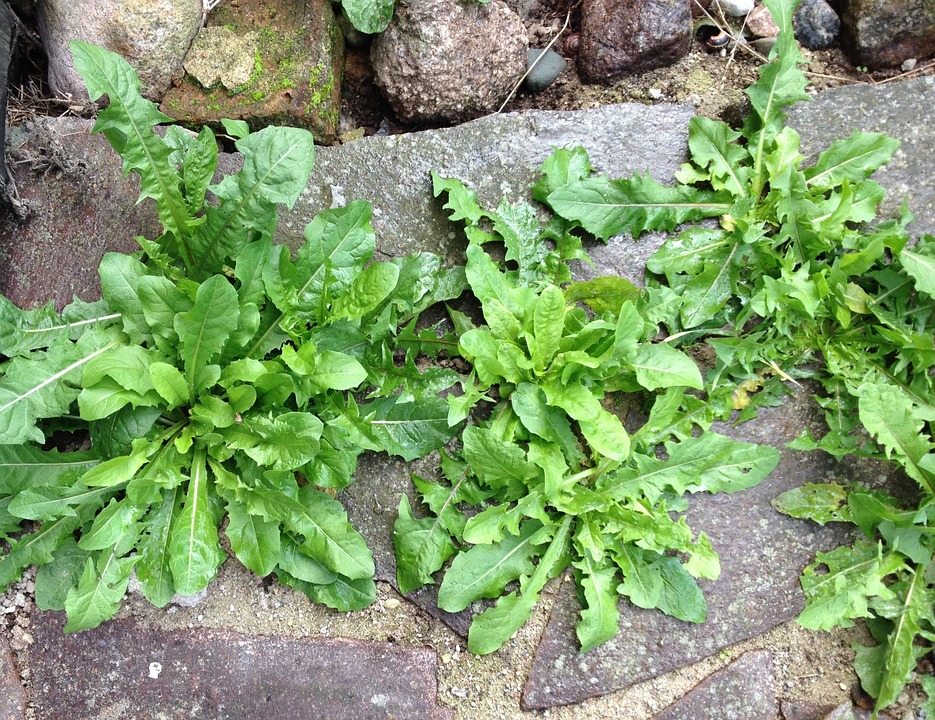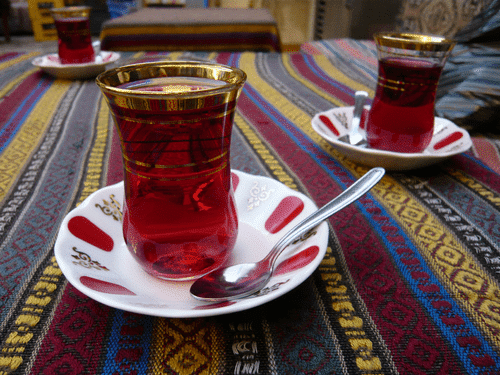 What would happen if you woke up tomorrow and didn’t have commercial toothpaste or mouthwash and there weren’t any stores open? Most people would panic and wonder how they were going to freshen their breath before having to work around other people. You don’t have to be one of those people. In fact, once you understand how to prevent and treat bad breath, called halitosis, you may never spend money on mouthwash again.
What would happen if you woke up tomorrow and didn’t have commercial toothpaste or mouthwash and there weren’t any stores open? Most people would panic and wonder how they were going to freshen their breath before having to work around other people. You don’t have to be one of those people. In fact, once you understand how to prevent and treat bad breath, called halitosis, you may never spend money on mouthwash again.
Causes
The first step in treating bad breath is finding out what is causing it. In most cases, bad breath is due to something in the mouth. Plaque and bacteria make your mouth dirty and create a foul smell that can be very offensive. Food particles trapped between your teeth can also cause bad breath.
Long-term or severe bad breath can be the result of a medical condition. You could have a cavity or gum disease that needs treatment. Your dentist can diagnose and correct these types of problems and put an end to halitosis. You may have a buildup of yeast in your body. This can cause tonsil stones, which have an unpleasant odor. You will be able to see them on the back of your throat. If you look at the left and right side of your throat and see small (or large) white particles, you most likely have a yeast buildup. You can find treatments for yeast buildup on the Internet or from your family doctor. Your physician may also be able to diagnose other problems that could cause bad breath. Sinus and lung infections can cause halitosis, as can gastric disorders.
The most obvious reason for bad breath is food. Garlic and onions are two of the worst offenders. These may taste great in your lunch, but they smell horrible in the office. Alcohol and tobacco also have strong odors that will cause you to have bad breath.
Fighting Bad Breath
No one wants to walk around with bad breath. It makes you self-conscious. If you have ever left your house in a rush and forgot to brush your teeth, you know all too well the embarrassment of bad breath. No matter how hard you try to avoid conversations, you inevitably get pulled into one. Keep the following tips in mind and your breath will be fresher than ever.
- Clean your mouth and keep it clean: Brush your teeth thoroughly, at least twice a day, and floss daily. Flossing is the only way to remove the food and bacteria caught between your teeth. You should keep an extra tooth brush in your desk at the office, and possibly a travel toothbrush in your glove box. You should always have a way to clean your mouth.
- Brush your tongue: Don’t ignore your tongue when you brush your teeth. Bacteria and film from food can buildup and create a nasty smell. Brush your tongue and the top of your mouth to remove any germs that can cause bad breath.
- Dentures need sleep: If you wear dentures, never wear them to bed. Your mouth needs time to air out. While you sleep, your dentures can be soaking.
175 Homemade Herbal Formulas for Glowing Skin & A Vibrant Self
- Saliva: Keep your mouth moist. A dry mouth can create a smelly mouth. Saliva contains natural antibacterial properties and helps wash food particles away from your mouth. Keep mints or hard candy around to stimulate the flow of saliva.
- Stress: Stay stress free. Stress can cause your mouth to dry out and ultimately cause bad breath.
- Food: If you are out in public, at work, or have a date, avoid eating foods that can cause bad breath. Garlic, onions, and certain fish can cause bad breath. If you want to eat these things, don’t eat them when you have to be around people.
- Baking soda: Baking soda cleans your teeth and freshens your breath. You can brush your teeth with plain baking soda, or you can gargle with baking soda to freshen your breath.
- Cheese: Low-fat cheese is an excellent tool for helping fight bad breath. Cheese fights bad breath and plaque. Eat some hard cheese after a meal containing smelly foods. Your breath will be fresher, and you’ll get some added protein.
- Vegetables: Carrots and celery are both known for fighting plaque. Even if you don’t have plaque, your breath will be fresher.
- Water: Rinse your mouth after eating to remove food particles.
- Spices: If you have foul breath, you can chew clove, fennel, or cardamom. These aromatic spices are known for fighting unpleasant breath and are used for halitosis in the Middle East. They also have antimicrobial properties that can kill bacteria that cause bad breath. Chewing fresh mint leaves can also help relieve bad breath.
- Apple cider vinegar: Rinse your mouth with a mixture of 1/2 tablespoon apple cider vinegar and water. Gargle with this mixture and freshen breath.
- Tea tree oil: Add tea tree oil to your toothpaste and freshen your breath. Tea tree oil is an antimicrobial and antifungal that will kill bacteria in your mouth and keep you from having halitosis. You can also make a mouthwash using tea tree oil. Add two or three drops of tea tree oil to warm water and gargle. Do not swallow tea tree oil; spit it out after you gargle.
- Citrus: Eating fruits like oranges and grapefruit helps to stimulate the flow of saliva. Saliva helps reduce the amount of bacteria in your mouth and thus reduce halitosis. Citrus fruits also smell great and leave your mouth feeling fresh and fruity.
You don’t have to hide from the world if you run out of mouthwash. Your kitchen cabinet has many remedies that can provide you with fresh breath. You can use these tips at home or keep some of them in your desk at the office. You should always have natural options for health treatments. You never know when the supply of commercial products you use is going to be gone. If this occurs, you can be prepared with natural, basic, home ingredients and treatments.
©2012 Off the Grid News












